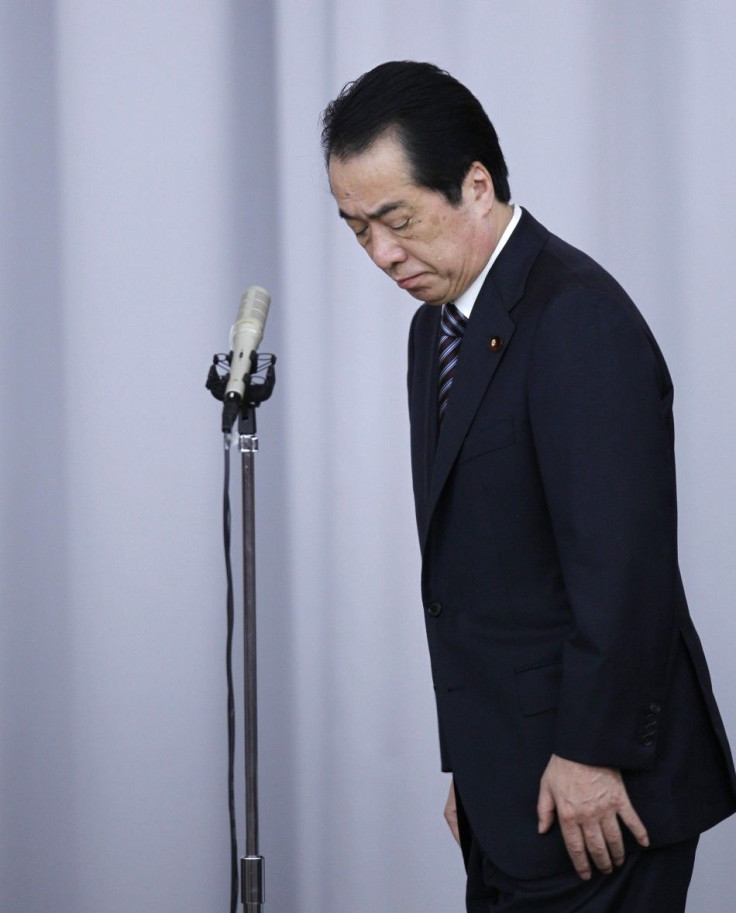Squabbling persists in Japan's ruling Party with Kan step-down drama

Squabbling continued in Japan's ruling party after Prime Minister Naoto Kan refused to step down, angering rivals who had voted down a no-confidence motion in return for a promise he would quit.
The bickering might further hamper efforts by Kan, who took over the Prime Minister's office a year ago to tackle steps needed to rein in massive public debt while engineering growth in the fast-aging country.
Kan survived a no-confidence motion on Thursday, as the country struggles with the world's worst nuclear crisis in 25 years. Kan had made a last minute offer to resign.
The whole deal appeared to have bought Kan ample time to prepare an extra budget to pay for rebuilding from the devastating March 11 earthquake and tsunami that triggered the crisis at Tokyo Electric Power Co's (TEPCO) Fukushima Daichi plant.
The situation heated up quickly after Kan suggested at a late night News Conference that he wanted to retain his position unless the damaged reactors at the crippled nuclear atomic plant achieved a stable cold shutdown, a process expected to take at least until January or possibly even longer.
If he cannot keep his promise, he is a fraud, Kyodo news agency quoted former prime minister Yukio Hatoyama, who brokered Thursday's last-minute pact with Kan. If he doesn't keep his word, I will take decisive action the report quoted him as saying.
Hatoyama told reporters, that Kan had agreed to step down after drafting the extra budget, a process that was expected to wind up in a month's time.
The main opposition party, the Liberal Democratic Party (LDP), has charged Kan of being incapable of dealing with the nuclear crisis, also joined in.
He has broken his promise. It is inappropriate for him to cling to power having expressed his intention to resign, Kyodo quoted LDP president Sadakazu Tanigaki as saying.
We cannot cooperate with a lame-duck government he added, according to the report.
Opposition parties, which control parliament's upper house, and are also capable of blocking bills, persisted that Kan steps down before they cooperate on implementing policies.
The Democratic party of Japan (DPJ) opponents of Kan swept to power in 2009 for the first time promising change, and have been angered by Kan's abrasive style and also fear that his low voter ratings might hurt them at the next general election, which is expected on 2013.
Kan's shift toward fiscal reform and away from costly campaign promises to spend more on households has also got many annoyed, the report stated.
© Copyright IBTimes 2024. All rights reserved.





















